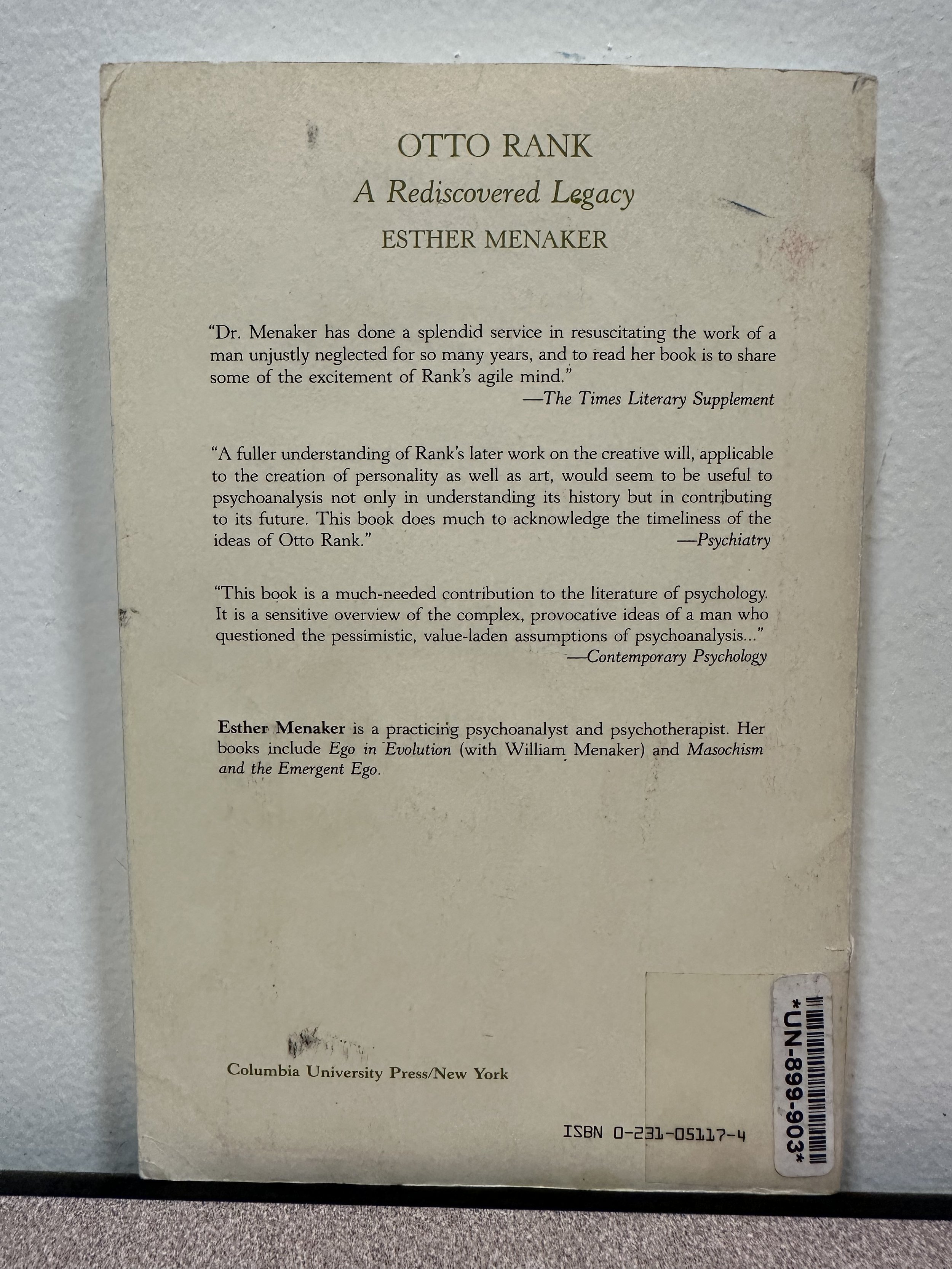Menaker (1982). Otto Rank: A rediscovered legacy


Menaker (1982). Otto Rank: A rediscovered legacy
Major movements brand their dissenters from within with what is anathema to the movement and then consign them to oblivion. Thus, the Catholic Church labels its dissenters as heretics, the Communist Party as bourgeois, and Psychoanalysis not to be outdone chides its mavericks as mentally ill. The more influential the person and the more profound the thinker, the greater the venom poured upon him and the more intense the effort to erase his name from the pages of history. It is now apparent from this latest book on Otto Rank by Esther Menaker that Rank more than qualified for this designation as dissenter. A brilliant young thinker and psychoanalyst who became part of Freud's inner circle for a number of years and was slated to be his successor at one time, he committed the unpardonable sin of developing his own theories. Over the years it is readily apparent that a psychoanalyst may contribute any number of clinical observations and contributions and have them accepted; but let that analyst rock the boat of psychoanalytic theory and a storm soon envelops him or her. Once Rank followed the path of his own clinical and personal experience to arrive at a new theoretical perspective, he drew unmitigated attacks from the psychoanalytic establishment, who tried to finish him off by labelling him a manic-depressive. Unfortunately, they have been successful to a remarkable extent.
Otto Rank: A Rediscovered Legacy is a major effort to resurrect the profound and pioneering contribution of Rank. As such, it has taken a psychoanalyst who is not so much a Rankian — a contradiction in terms given Rank's overwhelming emphasis on personal individuation — as one who rather resonates with Rank and personally embodies his ideals for a high level of self-creation and individuation through her own original thinking and her ability to take stands frequently inimicable to traditional Freudian psychoanalysis. Perhaps even more to the point, she like Rank has grappled with basic philosophical issues around the meaning of the human condition and has arrived at her own perspective. As a result, she is able to present Rank's views and contributions succinctly and with remarkable clarity, thus making Rank accessible, relevant, and influential as he has not been for many decades.
Condition: Used—Very good. Paperback, no marks.
